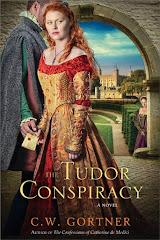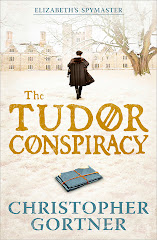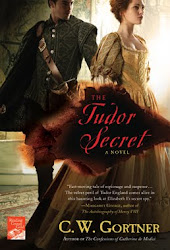THE EXORCIST by William Peter Blatty

I discovered it in my adolescence, not a good time to read a novel about a child possessed by a demon. It scared me so bad that for months afterwards I felt my bed rocking. In fact, it scared me so much I wouldn’t see the movie until I was in my mid-twenties and guess what? It freaked me out all over again. Written in stark, often obscenity-laden prose, the premise provokes major writer envy. Blatty struck a raw universal nerve, and hit major pay-gold, with his masterful ability to make us believe in the unthinkable.
 THE SHINING by Stephen King
THE SHINING by Stephen KingI read it while on vacation at the seaside and I couldn’t use the hotel bathroom because I was afraid of the dead lady in the tub. King had already blazed an enviable path with his Carrie and Salem’s Lot, but in The Shining he surpasses himself. Again, the premise provokes envy: a recovering alcoholic author takes a caretaker job in a snow-bound, haunted hotel with his wife and psychic son and starts to unravel. What elevates the story to classicism is its scythe-like insight into the dark recesses of the mind: no writer has ever portrayed the haunting of another writer as King does, and no one has ever been able to scare so many people by putting us in an allegedly empty hotel room.
 THE WITCHING HOUR by Anne Rice
THE WITCHING HOUR by Anne RiceShe’d already garnered super-star bestseller status with her Vampire Chronicles when Rice turned her velvet-and-blood attention to the world of the hereditary Mayfair witches and the vengeful spirit who haunts them. The series faltered but, oh, the first entry is perfection. From modern day San Francisco and New Orleans to the highlands of 16th century Scotland, Rice plunges us into a historically lush maelstrom of evil and redemption. The writing is drenched in allegory, feverish as only Rice at her best can be; and the moment when Lasher appears will make you shiver.
IMAJIC
 A by Clive Barker
A by Clive BarkerKnown as a modern-day master of horror, the disturbed mind behind such film classic demons as Pinhead, Barker has written a number of frightening novels, but in this one, arguably his most ambitious, he delivers a vast, mythological tale of an alternate and often horrific world beyond our own, where assassins and gods and monsters engage in an elaborate chess-board game of power and destruction, offering us a breathtaking, unforgettable elegy for our times. It needs to be read twice.
FEVRE DREAM by George R.R. Martin

He’s world-famous for those fantasy door-stoppers but in this early novel about a mid-nineteenth century steamboat in New Orleans where a race of vampires clash is truly awesome. Martin takes the genre clichés and redefines them; he also makes us both long to be, and conversely dread ever encountering, the now overdone undead.
Happy Halloween, everyone! Read something scary.















